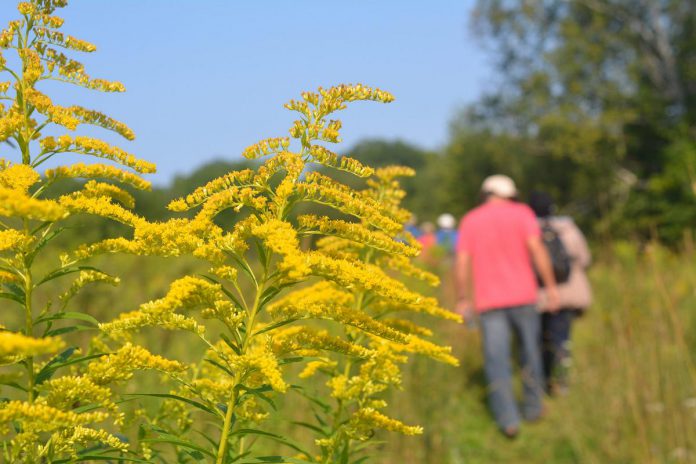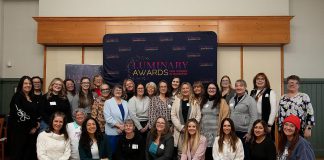
The Centre for Land Conservation (CLC) has announced six land trusts have achieved certification for conservation excellence, and Kawartha Land Trust (KLT) has made the list that recognizes conservation leadership from coast-to-coast.
For the first time in Canada, these six land trusts have earned “Conservation Excellence Certification,” which recognizes their “outstanding impact, governance, and sustainability in protecting our natural landscapes,” noted Charlotte Craig, CLC’s operations and research coordinator.
“This certification, a rigorous third-party evaluation, sets a new standard for conservation excellence across the country — and KLT is leading the way,” she told kawarthaNOW.
The program sets the gold standard for land conservation organizations in Canada, ensuring they meet and exceed the highest benchmarks in conservation practices and internal governance.
“Certification enhances credibility, strengthens donor confidence, and increases public trust, leading to greater investment and impact,” Craig said. “By joining the program, organizations commit to continuous improvement, driving excellence across the conservation sector.”
The other five organizations that have been certified for their conservation leadership including three in Ontario — Haliburton Highlands Land Trust, Couchiching Conservancy, and Ontario Farmland Trust — along with Nature Trust in New Brunswick and Southern Interior Land Trust Society in British Columbia.
“KLT is honoured to be among the first land trusts in Canada to receive Conservation Excellence Certification from the CLC,” said Anna Lee, KLT’s director of people and operations, in a statement.
“KLT remains committed to meeting and exceeding the highest standards in conservation, and we’re grateful to be part of a growing community of land trusts in Canada working to protect and care for the natural and working lands that sustain us.”
Land trusts are non-profit charitable organizations focused on conserving private property through donation, acquisition, and conservation agreements.
Founded in 2001, KLT protects 44 properties across the Kawarthas region that include 3,278 hectares (8,100 acres) of ecologically diverse lands, some of which are open to the public to hike or enjoy nature.
The CLC was established in 2019 as an independent Canadian policy and program leadership institute to support and grow better, faster, and sustainable private land conservation nationwide. CLC works in partnership with community-based land conservation organizations to develop initiatives that will grow the business of conservation in Canada.
The certification program “represents a watershed moment for land conservation in Canada,” said Lara Ellis, CLC’s executive director, in a media release.
“These six organizations have demonstrated exceptional commitment to conservation excellence. Their certification signals to donors, partners, and communities that they operate at the highest levels of professional practice and conservation impact.”
Protected natural areas are essential to the quality of life of Canadians, providing wildlife habitat and places for recreation, connecting people with nature in their communities, conserving vital biodiversity, and serving as natural carbon sinks that help mitigate climate change impacts, the CLC noted.
Recent polling shows that accreditation programs like the Conservation Excellence Certification “strongly influence” donor confidence, with 90 per cent of Canadian donors reporting increased confidence in third-party certified organizations, according to the release.
Certified organizations are authorized to use the Conservation Excellence Certification trustmark and will be listed in a public registry on the CLC website.
CLC said additional land trusts are currently undergoing assessment, and the program aims to enrol up to 40 land trusts across Canada by March 2026.
The certification program receives funding from Environment and Climate Change Canada, the McLean Foundation, Power Corporation of Canada, the Echo Foundation, and the Michael Young Family Foundation.
Certification is based on Canadian Land Trust Standards and Practices.
Organizations are evaluated on conservation outcomes, governance, sustainability practices, strategic planning, and financial management. Their certification is valid for four years, with the option to renew in the future.
More than 140 regional and community land trusts operate across Canada. Land trusts have protected more than 112,000 hectares (276,758 acres) of Canada’s terrestrial land mass.

























